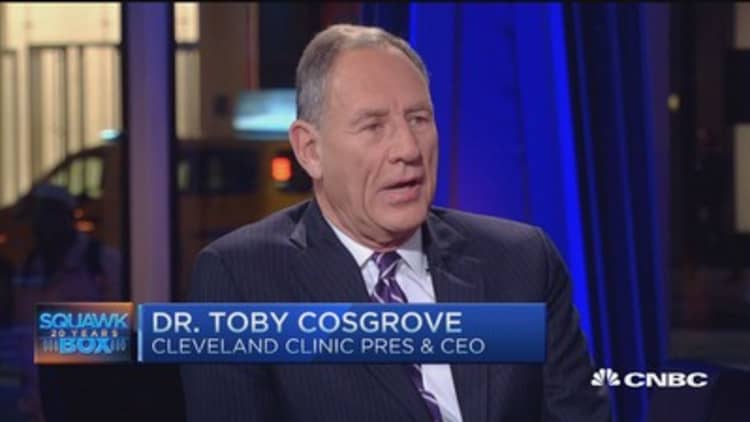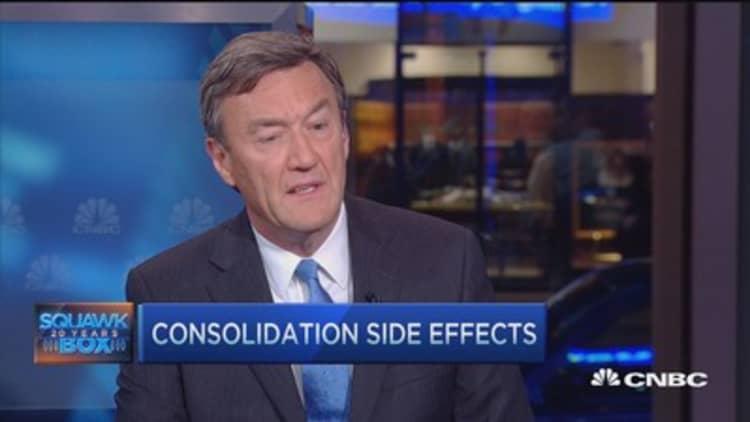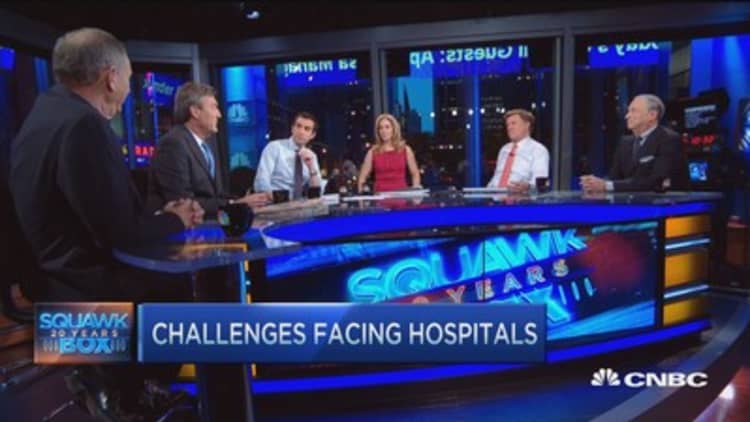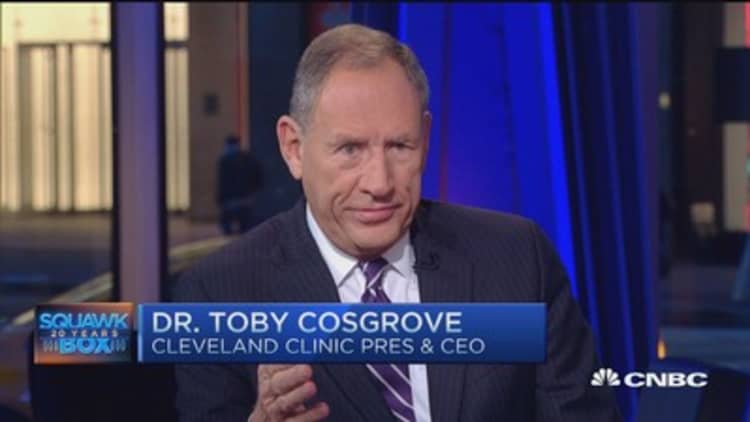


Financial pressures stemming from negotiations with insurance companies and higher drug costs are making it critical for U.S. providers to become more efficient, leaders of some of the nation's top health-care systems said Friday.
"There is new financial pressure on health care, and we're all trying to deliver high-quality care at a much more affordable price, and we realize that we need to be much more efficient as we go forward," Cleveland Clinic CEO and President Dr. Toby Cosgrove told CNBC's "Squawk Box."
Dr. John Noseworthy, president and CEO of the Mayo Clinic, said those financial pressures are challenging providers to streamline their businesses. It remains to be seen how recent consolidation among health insurers will affect providers and health-care customers, he added.
"We'll see whether that's good for consumers or not. It's a tight rope," he told "Squawk Box." "It may well be that prices will go up and negotiations will be more difficult."
Read More Side effect of health-insurance mergers: Better health care?
Dr. Robert Grossman, dean and CEO at New York University's Langone Medical Center, said those negotiations are often difficult already. The challenge for providers is proving they provide value for an insurer's cohort of patients, he said.
Total spending on health care and related activities such as administration of insurance and research doubled between 2000 and 2013, reaching $2.9 trillion, according to Kaiser Family Foundation analysis of government data.
Health-care spending per person has grown at historically low rates in recent years, but began ticking up last year, Census Bureau data compiled by Kaiser show.

As for drug costs, Cosgrove said there is no doubt that pharmaceutical companies have delivered "tremendous" products. What people are objecting to is the practice of buying existing drugs and increasing the cost exponentially without improving the pills.
Cosgrove said the Cleveland Clinic managed to reduce the cost of running its pharmaceutical supplies by $10 million, but those savings were offset by $11 million in cost increases by Valeant Pharmaceuticals, which has attracted government scrutiny for its pricing practices.
Read MoreValeant receives subpoenas from US prosecutors on how drugs are priced
Valeant has said price increases fund research and development. The company has also faced criticism for cutting R&D expenditures.
Another problem is the United States is the health innovator for the world, and Americans typically pay a premium for drug costs, Cosgrove said.
Noseworthy said his concern is the cost of drugs — even those that have been on the market for years — continues to rise year after year without providing outcomes worth the price.
"If the medication changes a person's life, and basically cures the patient ... if there's value in it, you can see spending money for that," he said. "The problem that we're all dealing with is a lot of the medications have a rather minimal effect on the patient, and yet the prices are through the roof."
Read More Medicare drug plan prices set to rise in 2016, some by a lot
Federal investment in innovation through the National Institutes of Health is also a concern, Noseworthy said.
"New treatments and diagnostics come from that work that may obviate the need for these expensive drugs, so it's a balance," he said. "We've basically defunded the NIH over the last 11 years, and that's a problem if you're going to be the leading developer of new treatments in medicine. Our position could fall if that doesn't turn around."


